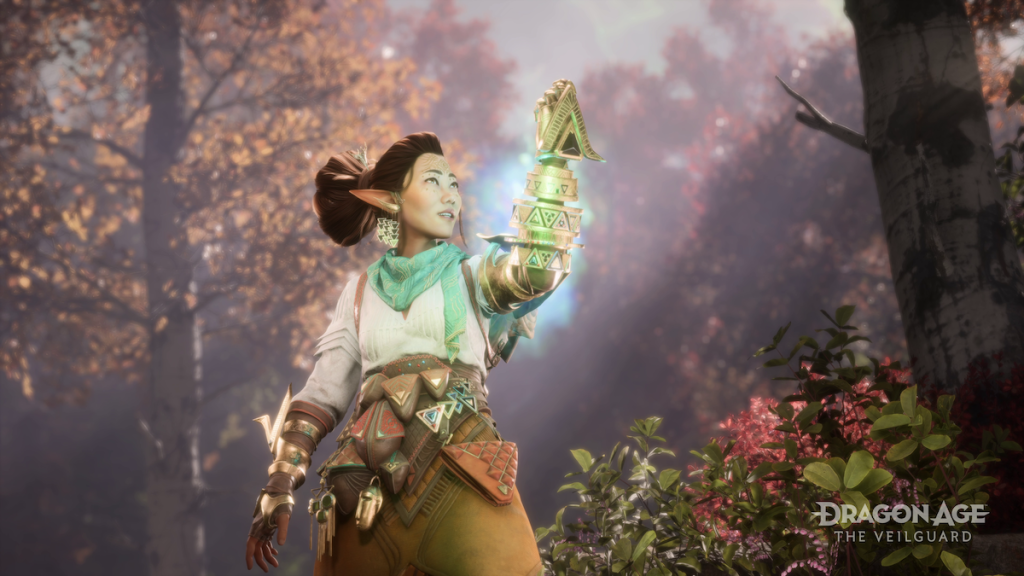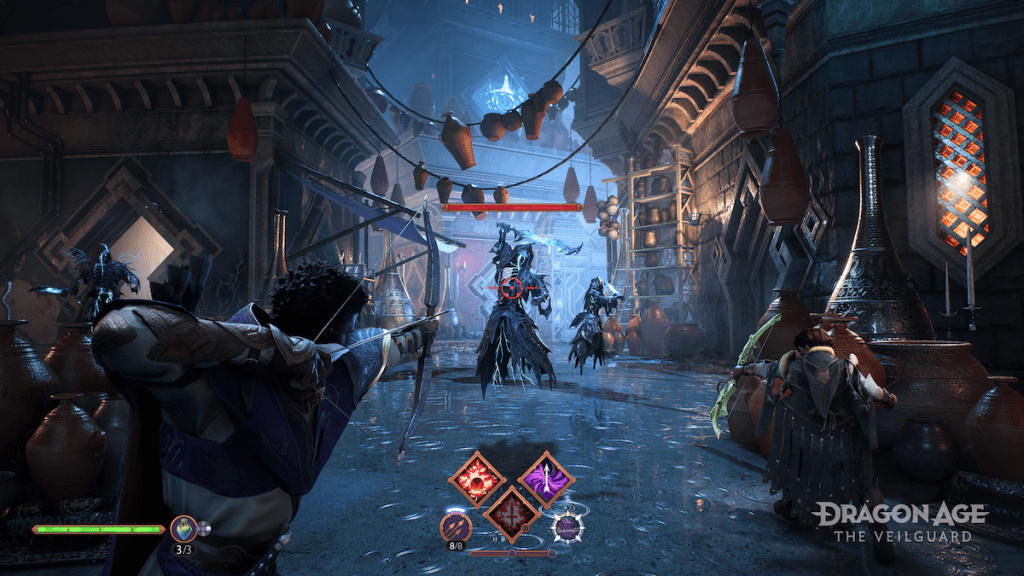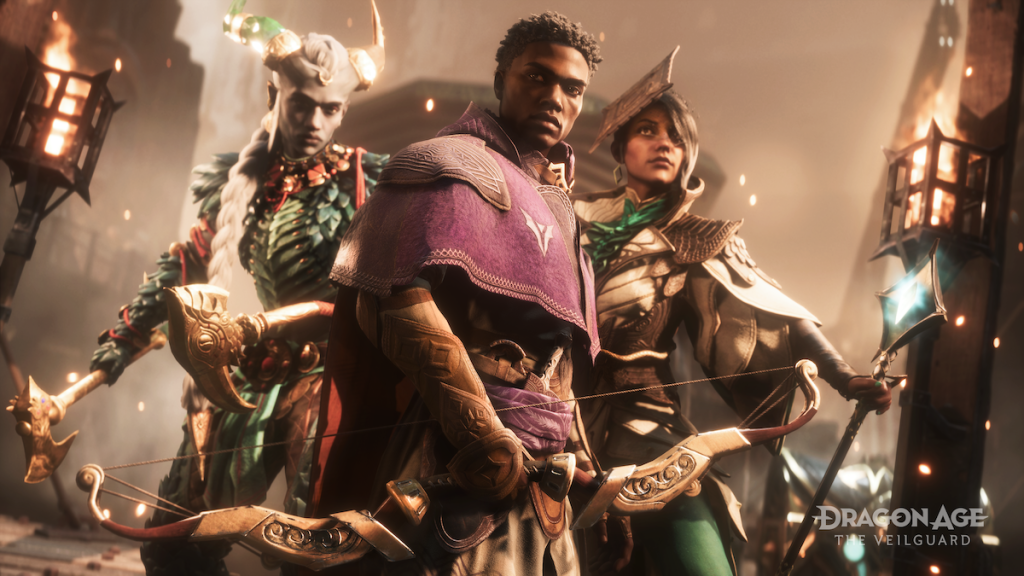As I sat down for one of EA‘s closed-door presentations of Dragon Age: The Veilguard, it didn’t take long for me to sense the excitement in the air. Despite this being a hands-off presentation of the game’s first hour, it was hard not to notice the plastered smiles and excited whispers coming from my fellow writers and content creators to the left and right of me. And this makes sense; it’s been a decade since players have gotten their hands on a new Dragon Age, and BioWare‘s other offerings over the past 10 years weren’t exactly slam dunks.
With the game’s director, Corrine Busche, guiding us through the first hour of the game, it became clear that the dev team was looking to open up the world of Dragon Age to all types of players, from more casual newcomers to those who logged countless hours across the franchise’s other titles. Of course, as you’d expect from most western RPGs at this point, the presentation kicked off with an overview of the character creator.

Your Character
Now, if I’m being honest, spending an hour or two obsessing over my character’s and eye color and facial scars is not something I normally place a lot of importance on, but I know I’m probably in the minority on that. To their credit though, BioWare looks to have spend a lot time and effort to craft a robust character creation system, even going so far as to make sure skin tones and hair styles look great throughout the course of your adventure.
“We wanted to make sure skin tones were well represented,” Corrine explained, “including the under hues that influence how our skin shows up under different lighting conditions, even controlling for levels of melanin.”
And I have to admit, the end result looked rather good, thanks in part to the ability to look at your character under several different lighting conditions representative of in-game locales and settings. It only took a few minutes to throw together a great looking character, and there are plenty of presets and randomizers at your disposal should you want to get into the game in as little time as possible.

Your Combat
While Dragon Age: The Veilguard only features three core classes (Rogue, Warrior, and Mage), Corrine explained that each one can pick from different specializations to better align with one’s intended playstyle.
“Each class has three bespoke and unique specializations that are really classes unto themselves. The duelist plays much different to the saboteur, who prefers to use gadgets, turrets and bombs. The Veil Ranger is my personal favorite [Rogue] specialization, as it prioritizes the bow arrow and can magically infuse arrows. Now, each of these specializations are unique per class, and are backed up by an incredibly robust skill tree which is also unique per class. It really allows you to customize and curate how you exist and how your gameplay experience plays out to your tastes.”
Admittedly, I was a bit surprised to see the combat adopting a stronger focus on action — if you’ve checked out any footage of the game in action, you’ll probably notice how the camera is a bit closer to your player, lending a more intimate feel that I normally associate with third-person action-adventure games. It’s a noticeable difference compared to say the first or second Dragon Age, but BioWare has taken some steps to provide options for those who prefer a slower-paced, strategic experience.
Sure, you can’t control your companions directly, but along with firing off abilities using more recognizable button combos, you can also use any of these abilities by pulling up an ability wheel. This completely pauses the game, which helps to slow down the sometimes frantic pace for those who would rather not deal with juggling their companions in real time.

Your Companions
If you’re a purist who’s worried that The Veilguard isn’t your grandfather’s Dragon Age, you’ll be delighted to hear that the battle-tested dialogue and companion system from previous games is back in full force. Completely separate from class or species, you’ll be able to select a backstory for your created character, which also unlocks new dialogue options that are unique to that background.
As you’d come to expect, being able to choose your own dialogue can have both short-term and long-term impacts, whether it’s affecting how specific plot arcs unfold, or influencing how your companions think about and treat you. For those of you who are far more in touch with Dragon Age’s lore than I am, you’ll probably get a kick out of seeing fan-favorites like Varric or Harding, who serve as your companions (along with a few other new characters).
While I’m by no means concerned, one niggling thought that I couldn’t get rid of was that The Veilguard might be trying to appease too wide of an audience, losing its uniqueness and core identity in the process. That being said, if there’s a studio capable of striking a careful balance like this, BioWare would be a top contender — and I’m certainly hoping that they are propelled back into the AAA game dev spotlight when Dragon Age: The Veilguard releases this fall.






